When digital technology can distort children's behavior
In the context of digital technology penetrating deeply into the lives of children, unfortunate incidents in schools are ringing alarm bells. The incident of a 7th grade student in Hanoi pulling the teacher's hair when her toy was confiscated is not only an isolated incident, but also reflects the increasingly complex impact of the online environment on children's behavior and perception.
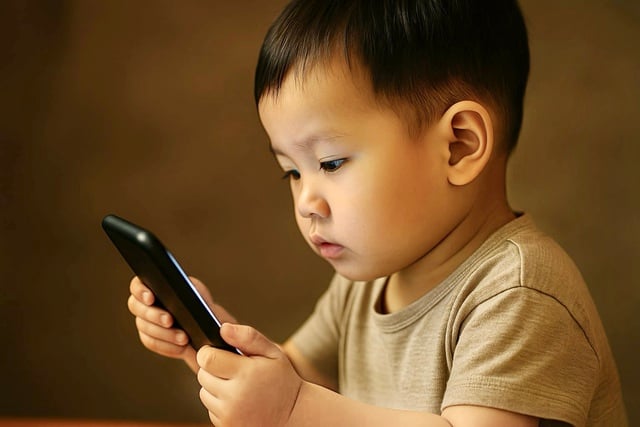
Nowadays children are exposed to technology from an early age.
PHOTO: CREATED BY AI
According to a 2025 report by the Department of Children, Ministry of Labor, War Invalids and Social Affairs (now the Ministry of Home Affairs ), up to 89% of Vietnamese children access and use the internet every day, with an average of 5-7 hours/day on social networks. The average age of Vietnamese children owning a mobile phone is only 9 years old, about 4 years earlier than the global average. These figures show that early exposure to digital devices is shaping the way children receive information, entertain themselves and express their emotions.
What is worrying is the rapid spread of events in the digital environment. In just a short time, the clip recording the scene of the student pulling the teacher's hair was widely shared, receiving thousands of comments. The effect is that other children may see the protesting behavior as a way to "stand out". The more the story is discussed, the more the deviant behavior is at risk of being exaggerated and unintentionally becoming a deviant role model.
According to experts, early exposure to violent games and shocking videos also changes children's "tolerance threshold". Scenes of fighting and opposing adults, which were once strange and contrary to social norms, have now gradually become familiar, even normalized. In the case of the 7th grade student, the strong reaction when his toy was confiscated may have stemmed from being accustomed to the "instant stimulation" rhythm in the virtual world, leading to uncontrolled reflexes in real life.
Ms. Tran Thi Hang (living on Dien Bien Phu Street, Binh Thanh Ward, Ho Chi Minh City) shared: "Recently, when surfing social networks, I see more and more violent images and videos appearing. Even on TikTok, with the development of artificial intelligence (AI), many animated videos with illogical content are created, easily affecting the psychology of young children. Typically, "brain rot" videos (a term on social networks referring to intellectual and cognitive decline due to too much exposure to low-quality, meaningless content on the internet - NV). At this age, children are in a stage of very fast learning, not yet able to distinguish right from wrong, so if they watch such videos, it will be very easy to follow."

Parents should guide the programs their children should watch.
PHOTO: CREATED BY AI
Educational psychologists have repeatedly warned about the negative effects of technology on students' psychological development. Associate Professor, Dr. Tran Thanh Nam (psychologist, Head of the Department of Educational Sciences, University of Education, Vietnam National University, Hanoi), once shared in Cong Luan Newspaper in 2025 that: "The spread of toxic content on social networks is creating a chain effect, eroding good cultural and aesthetic values among young people, making them easily caught up in deviant trends."
Dual pressure and monitoring gap
According to experts, during puberty, children already have many psychological changes such as the need to assert themselves and the desire to be recognized in the community. When "flooded" with information on social networks, children often fall into a state of comparison. This "social comparison" phenomenon is one of the causes of increased feelings of inferiority, anxiety and depression in adolescents. Not only students themselves, many parents when exposed to and influenced by social networks also easily increase their expectations of academic performance, unintentionally putting greater pressure on their children.
The combination of the above two factors causes many children to fall into a state of overload. When they can no longer control their emotions, children tend to overreact to small conflict situations, even considering strong opposition or resistance as a way to "relieve" stress. Dr. Tran Thanh Nam in the article "Studying pressure: 'Invisible killer' of mental health" on VOV emphasized that: "The dual pressure from school and social networks makes teenagers easily fall into a state of overload, from which negative reactions or withdrawal appear."
Along with internal pressures, the lack of supervision in the environment exacerbates the problem. Many students now own their own phones and spend hours a day on social media without proper guidance or control from adults. Frequent exposure to violent content, from clips of students defying teachers to shocking videos, risks creating a distorted perception and seeing violent acts as normal behavior without controlling the consequences.
This is also clearly reflected in the research of Master Mai My Hanh (Deputy Head of Psychology Department, Ho Chi Minh City University of Education), on the development and evaluation of the results of the online bullying prevention program. The survey results show that nearly 52% of high school students have been bullied online, and 60.8% have committed online bullying. According to Ms. Hanh, children who are exposed to technology early but lack supervision are very susceptible to being caught up in the spiral of violence, and can be both victims and perpetrators.

Parents can guide their children to participate in other activities, instead of just using mobile devices.
PHOTO: CREATED BY AI
Real life also reflects this risk. Ms. Pham Linh Chi (living on Ben Van Don Street, Vinh Hoi Ward, Ho Chi Minh City) expressed: "My child is very addicted to watching cartoon videos with distorted images on social networks, sometimes saying long and difficult to understand sentences like "tung tung tung sa hua", and his behavior also becomes strange, very dangerous".
Not only on a personal level, according to a UNICEF report (2019), children and adolescents will also be negatively affected psychologically when their images and information are ridiculed, mocked or spread on social networks. In Vietnam, there have been many cases of students being disciplined for filming teachers and friends and posting them online.
From these facts, it can be seen that digital technology, if lacking proper supervision and guidance from family and school, can become a "double-edged sword" in the educational environment.
A sobering lesson
The incident of the seventh grader pulling the teacher’s hair cannot be blamed entirely on digital technology, but technology has clearly played a significant role as a catalyst. It has exposed gaps in emotional and digital skills education and especially the lack of adult companionship in children’s growing up process.
In that context, the family plays the most important role as a shield, helping children develop safely and civilly in cyberspace. Parents not only need to control the time spent using devices but also need to become a "companion" to guide their children to use technology positively. As Dr. Le Thi Phuong Hoa, Faculty of Psychology - Education, University of Education - Thai Nguyen University, emphasized at the online seminar in 2023 "Protecting children's safety in cyberspace": "Parents need to equip themselves with technological knowledge, closely monitor their children's information-seeking habits to promptly orient and prevent negative impacts".
Along with the family, the responsibility of the school is also an indispensable factor. Currently, some schools have begun to test the topic of cyber security to equip students with the necessary skills. At the same time, according to the draft of the Department of Education and Training of Ho Chi Minh City, all schools in Ho Chi Minh City will simultaneously regulate the restriction of students using phones and electronic devices during recess from January 2026.
Digital technology is not inherently at fault, but the problem lies in the way children are approached and guided when using it. If not promptly corrected, children can apply "virtual standards" to real life, leading to impulsive actions that hurt their own teachers. The incident in Hanoi is therefore a strong warning, forcing us to look back at our educational responsibilities and take more drastic actions to protect the purity of the school environment in the digital age.
Source: https://thanhnien.vn/giu-ton-nghiem-trong-giao-duc-nhung-bong-den-cong-nghe-so-185250926075713865.htm






![[Photo] Prime Minister Pham Minh Chinh attends the groundbreaking ceremony of two key projects in Hai Phong city](https://vphoto.vietnam.vn/thumb/1200x675/vietnam/resource/IMAGE/2025/9/27/6adba56d5d94403093a074ac6496ec9d)





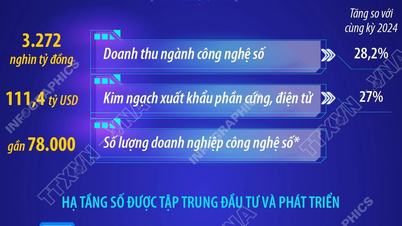








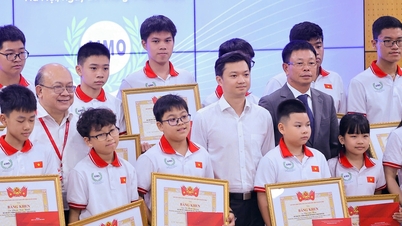
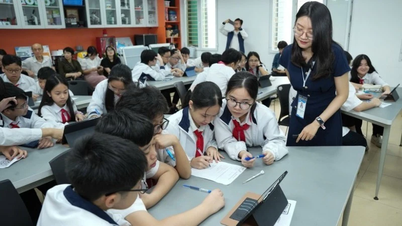
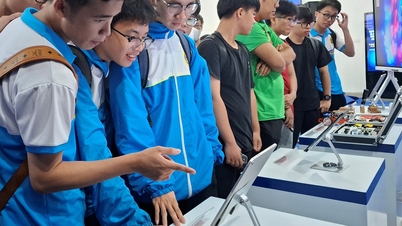










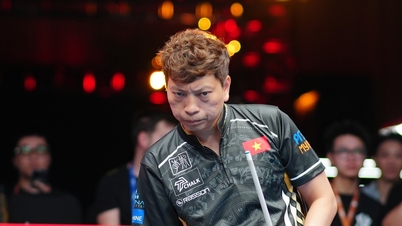











































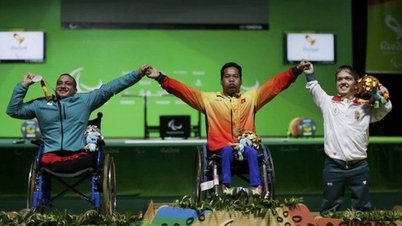






















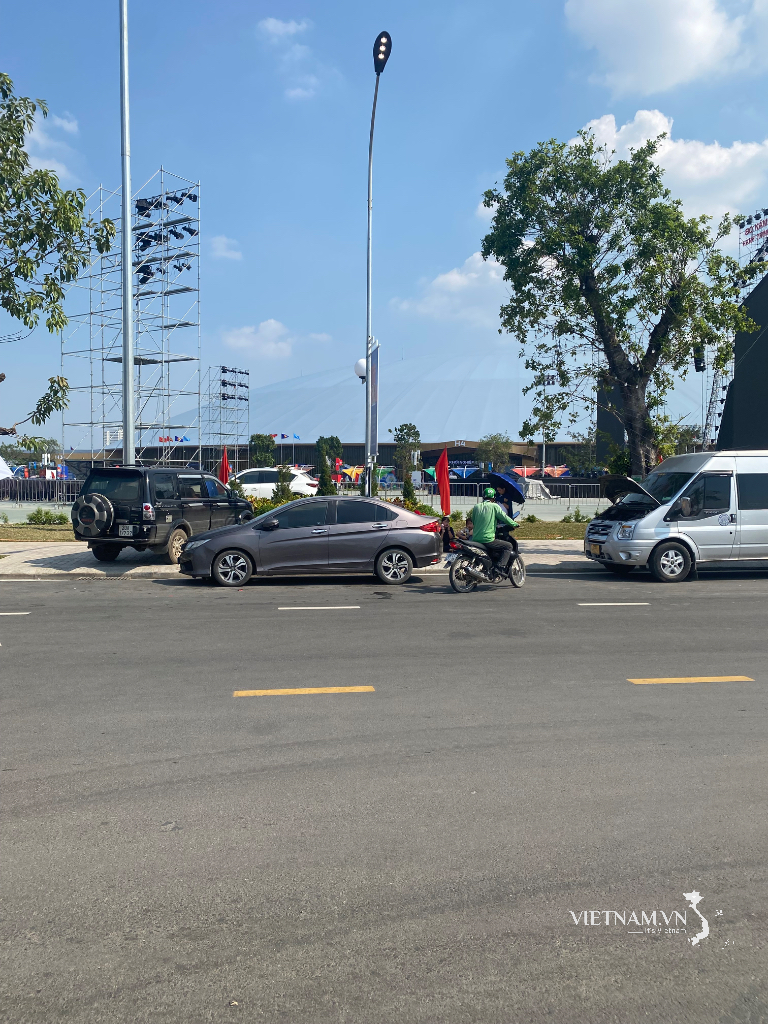


Comment (0)